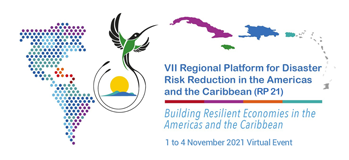Private sector steps up for resilience in the Americas
The private sector in the Americas and the Caribbean region is taking a prominent role in implementing effective risk reduction measures, but too many business and political leaders are still blind to the benefits of spending on disaster prevention, said Mami Mizutori, head of the UN Office for Disaster Risk Reduction (UNDRR).
“I am very encouraged that the private sector is leading in so many ways,” Mizutori told a closing session of the ARISE Forum – Americas and the Caribbean, hosted by the Private Sector Alliance for Disaster Resilient Societies (ARISE).
The forum, a preliminary event to next week’s VII Regional Platform for Disaster Risk Reduction, debated how the private sector can bring disaster risk information to other social sectors, support risk-informed governance and help governments meet the United Nations 2030 Agenda for sustainable development, including disaster risk reduction.
“All stakeholders need more convincing that disaster risk reduction and prevention pay off. Despite the Covid-19 pandemic and the climate emergency, there is a conviction that investing in disaster risk reduction is a cost and not an investment,” Mizutori told the virtual gathering.
The closing session of the wide-ranging forum was also addressed by Claudia Herrera Melgar, Executive Secretary, CEPREDENAC (the Coordination Centre for the Prevention of Disasters in Central America), Pilar Garrido Gonzalo, Minister of Planning and Economy of Costa Rica and Hans-Peter Teufers, director of international programs at the UPS Foundation and an ARISE Vice-Chair.
The Americas and the Caribbean are highly exposed to hazards such as earthquakes and violent tropical storms. The Sendai Framework, the global blueprint for action on disaster reduction and a key part of the United Nation’s 2030 Agenda on Sustainable Development, recognizes the role that businesses, small and large, can play in driving the changes needed to meet targets for cutting the huge cost of disasters in lives and livelihoods.
The regional platform, the Americas and Caribbean region’s most important disaster risk reduction event, which is being hosted 1-4 November by Jamaica, will bring together governments, civil society and the public and private sectors under the theme “Building resilient economies in the Americas and the Caribbean.”
The ARISE forum looked at the next steps for building business resilience, defined as the ability to resist, adapt to and recover from disasters, the lessons for disaster prevention and response from Covid-19, which has hit the Americas particularly hard, and the design of business continuity plans. Caricham, the Caribbean network of chambers of commerce, announced the launch of a business continuity planning tool kit designed, with the help of UNDRR, to improve members’ disaster preparation.
Other themes included the role of the insurance sector, which is switching away from protection towards prevention. Even the larger insurers can struggle to pay out on the biggest disasters. The forum looked at the part private sector networks – ARISE brings together 21 such networks – can play in disaster preparedness and heard about cost and benefit modeling for resilient infrastructure. The special challenges facing small and medium-sized enterprises (SMEs) were also examined. Once hit by disaster, even the biggest SMEs find recovery difficult.
Reducing vulnerability as part of overall social development in Central America was a key aim of CEPREDENAC, said Herrera, who also stressed the importance of cooperation between the public and private sectors. Costa Rica’s Minister of Planning and Economy detailed steps the country is taking in building disaster resilience.
Mizutori concluded by urging ARISE members to take part in the regional platform, which for the first time will be held in virtual format. “I would like to ask the energetic community of ARISE to … come together with governments, civil society and the young to create a better future for all,” she said.


